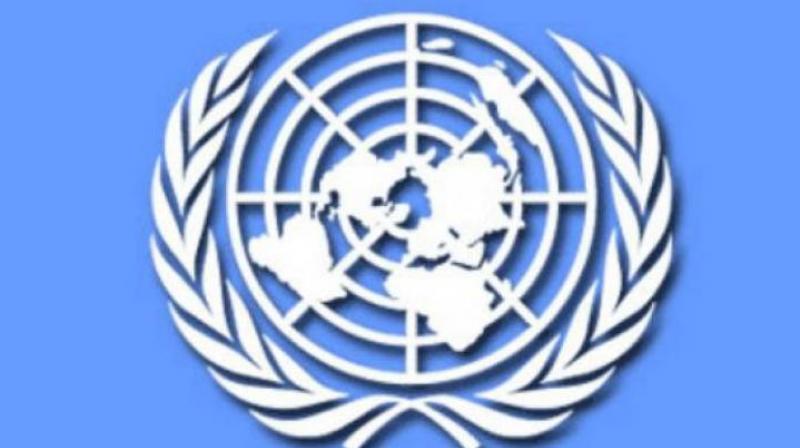India fumes over United Nations report on Jammu and Kashmir
India rejects findings of UNHCHR report on J&K rights violations'.

New Delhi: In a huge jolt to India, United Nations High Commissioner for Human Rights Zeid Ra’ad Al Hussein said on Thursday in Geneva that he would “be urging the UN Human Rights Council to consider establishing a commission of inquiry to conduct a comprehensive independent international investigation into allegations of human rights violations in Kashmir”. His office (UNHCHR) also released a highly controversial 49-page report—claimed by it to be “the first ever issued by the UN on the human rights situation in Indian-Administered and Pakistan-Administered Kashmir” – that alleged “human rights violations and abuses on both sides of the Line of Control”, and “highlighted a situation of chronic impunity for violations committed by security forces”.
India swiftly rejected the findings of the report on the situation in J&K and lodged a protest, saying it was “fallacious, tendentious and motivated” and even “questioning the intent” behind it. A furious New Delhi said the report was a “selective compilation of largely unverified information”, that it was “overtly prejudiced and seeks to build a false narrative” and that it “violates India’s sovereignty and territorial integrity”. The report was equally harsh on Pakistan. “Despite the Government of Pakistan’s denial of any support for these groups, ... a number of experts have concluded that Pakistan’s military continues to support their operations across the Line of Control”. The report said human rights violations in “Pakistan-Administered Kashmir” (PoK) “are of a different calibre or magnitude and of a more structural nature”.
But a gleeful Pakistan, in its reaction, “welcomed the proposal” to “establish a Commission of Inquiry for international investigation into human rights violations” in Kashmir. Islamabad however chose to gloss over the fact that the report has also indicted the Pakistan Army for supporting militants at the LoC and has also criticised human rights violations in Pakistan-occupied Kashmir (PoK). More worryingly, the UN HCHR report called on India to “fully respect the right of self-determination of the people of Kashmir as protected under international law”. As is well-known, India is firmly opposed to any self-determination on the basis of a plebiscite--which is demanded by the separatists and Pakistan---and New Delhi's position is that J&K is an integral part of India.
A livid New Delhi said it was “disturbing that those behind this report have chosen to describe internationally designated and UN-proscribed terrorist entities as ‘armed groups’ and terrorists as ‘leaders’ and that “this undermines the UN-led consensus on zero tolerance to terrorism.” New Delhi further said India’s “protest and views in the matter have been conveyed unequivocally to the Office of the High Commissioner for Human Rights” and that it is “deeply concerned that individual prejudices are being allowed to undermine the credibility of a UN institution”. Terming terrorism as “the most egregious violation of human rights”, India accused the report’s “authors as having conveniently ignored the pattern of cross-border terrorism emanating from Pakistan”. The report itself pointed out that “armed groups” have “committed a wide range of human rights abuses, including kidnappings and killings of civilians and sexual violence, going on to admit that
But despite these indictments, Islamabad said, “Pakistan welcomes the proposal by the UN High Commissioner for Human Rights to establish a Commission of Inquiry for international investigation into human rights violations ... (in Kashmir). ... The report by Office of the High Commissioner for Human Rights (OCHCR) clearly stipulates that its main focus is on ... Jammu & Kashmir. ... References to human rights concerns in Azad Jammu and Kashmir (PoK) and Gilgit-Baltistan should in no way be construed to create a false sense of equivalence with the gross and systematic human rights violations ... (in J&K).”
The UN document meanwhile stated that “the main focus of the report is the human rights situation in the Indian state of Jammu and Kashmir from July 2016 — when large and unprecedented demonstrations erupted after Indian security forces killed the leader of an armed group - to April 2018.” The reference is of course to the killing of Hizbul Mujahideen terrorist Burhan Wani. The UN HCHR report said, “Indian security forces used excessive force that led to unlawful killings and a very high number of injuries,” citing “civil society estimates that up to 145 civilians were killed by the security forces between mid-July 2016 and the end of March 2018, with up to 20 other civilians killed by armed groups in the same period”.

